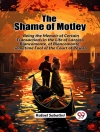In ‘The Doom of the Griffiths, ‘ Elizabeth Cleghorn Gaskell crafts a compelling tale steeped in the themes of familial duty, societal expectations, and the impact of moral choices. Written in the mid-19th century, this novella exemplifies Gaskell’s realistic literary style, characterized by vivid characterizations and intricate social commentary. The narrative intricately weaves together elements of tragedy and social critique, highlighting the struggles of the Griffith family as they navigate personal crises against the backdrop of Victorian social mores. The story unfolds with a keen psychological insight into the characters’ motivations, immersing readers in their moral dilemmas and emotional turmoil. Gaskell, a prominent figure in Victorian literature, often drew inspiration from her own experiences to examine the roles and struggles of women and the working class. Her background as a writer of biographies and novels, complemented by her active engagement in social issues, informs her nuanced portrayal of human frailty and resilience in ‘The Doom of the Griffiths.’ This novella reflects her dedication to illustrating the complexities of everyday life and the moral consequences of individual actions. Readers seeking a rich exploration of ethical dilemmas amidst societal pressures will find ‘The Doom of the Griffiths’ both enlightening and evocative. Gaskell’s masterful storytelling and keen observations not only provide a window into the values of her time but also resonate with contemporary audiences, making this work an essential addition to the canon of Victorian literature.
Sobre el autor
Elizabeth Cleghorn Gaskell (1810-1865) was an esteemed English writer, celebrated for her delicate rendering of Victorian society, with a particular focus on the lives of women and the complexities of social strata. Born in London, she was raised in Knutsford, Cheshire, after her mother’s untimely death. Gaskell’s literary style can be defined by its blend of realism and romanticism, presenting a vivid tapestry of the era’s dilemmas and social injustices. Her narratives often weave through intricate human emotions and social critique, as exemplified by ‘The Doom of the Griffiths’ (1858), a haunting short story laden with themes of familial curses and the destructive nature of obsessive revenge. Gaskell’s work includes novels, short stories, and a biography of her dear friend Charlotte Brontë. Among her most notable works are ‘North and South’ (1855) and ‘Cranford’ (1853), both of which provide insightful commentary on the industrial revolution and its impact on Victorian England. Gaskell’s writing is further distinguished by her empathetic prose and the dignified portrayal of characters from various social classes. Her legacy persists as a sophisticated observer and chronicler of 19th-century British life, an author whose works continue to be celebrated for their narrative depth and social consciousness.












